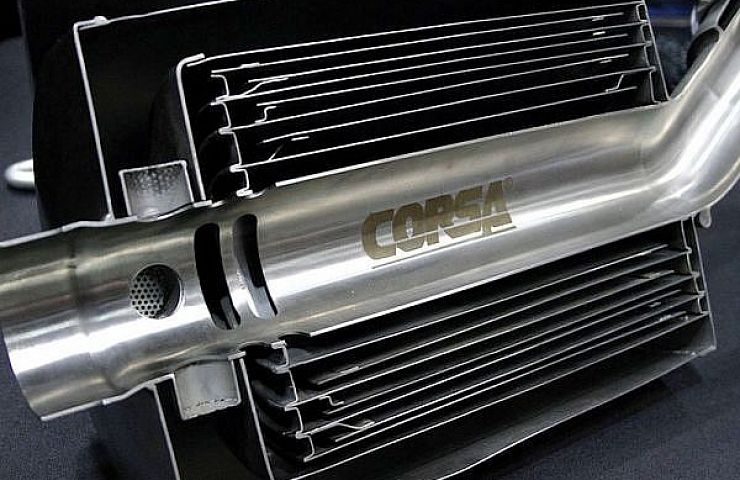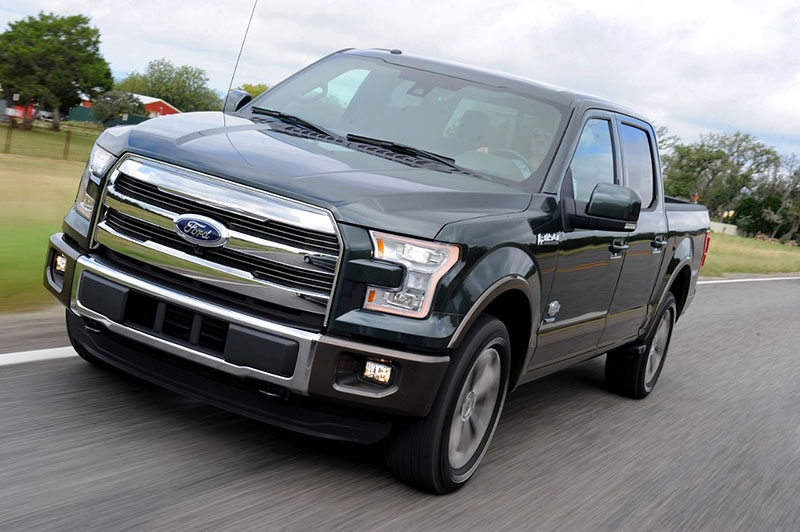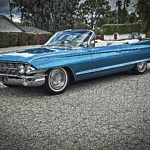One of the biggest trends in new trucks is the use of smaller displacement turbocharged engines. While these engines deliver better fuel economy—aimed at meeting increasingly stringent efficiency standards—they lack the traditional deep growl of a V8 engine. Can you say wimpy? This begs the question: can drivers get better fuel economy without sacrificing a great exhaust note? The answer could be found at Corsa Performance, based in Barea, Ohio.
When automotive enthusiast Nick Picariello recently bought a 2015 Ford F-150 with a fuel-efficient 3.5L V6 EcoBoost engine, he immediately equipped it with a Corsa Xtreme exhaust system. “I was worried about the sound of the 3.5L V6 EcoBoost,” said Picariello. “It’s not the best sounding V6, so I knew I had to be careful with my pick of exhaust. I was confident that if any company could make this engine sound better it would be Corsa.”
Picariello believes the Corsa equipment gives the truck a nice aggressive note at idle—and provides an equally sonorous rumble mixed with a hint of turbo whistle. “At wide open throttle, it’s loud and while cruising, it has a nice deep tone,” he said. “It isn’t overly loud, but just lets you know it’s there.”
Picariello believes that sound is integral to the driving experience. “I drive with the radio off and the windows down often just to hear the truck.”
The Sound of Smaller Displacement
Corsa is on a mission to address the auditory challenge of smaller displacement engines. “It is really difficult to make these smaller engines sound good,” said Brent Noward, Corsa Performance’s marketing manager. “You just can’t get that big, hefty V8 sound from the smaller turbocharged engine. Turbocharged cars are more powerful in most instances then the big V-8.”
Corsa’s exhaust kit features patented Reflective Sound Cancellation (RSC) technology, which eliminates certain frequencies—and provides a drone-free sound experience.
Technologies like cylinder deactivation make the situation even more challenging. Since the Corsa exhaust is made of metal parts, it can’t tell what the vehicle is doing. For example, an exhaust that sounds great when a 2015 GMC Sierra is using eight cylinders might sound terrible when it’s using four cylinders. It’s like a different musical instrument.
“Four-cylinder technology has made it very difficult on the aftermarket exhaust side to create something that sounds good in every single driving parameter,” said Noward. “That is one of the bigger challenges we face. When the GM trucks switch to four-cylinder mode, we can make it sound good enough with our RSC technology.”
How Does Corsa Tune an Exhaust?
Getting the right drone-free sound is not simply a matter of slapping on a muffler. Corsa has two acoustic engineers on staff to implement the right strategy. They spend thousands of hours on each vehicle and engine configuration.
When tuning a vehicle, Corsa engineers strip off the exhaust system and start over with a straight pipe. This allows them to hear what the engine really sounds like without restrictions or dampeners. Then, they start adding their exhaust setup with stainless-steel pipes, while employing computer lab to tune the muffler with their RSC technology.
The RSC technology is basically a serious of chambers built into the muffler. When sound enters the muffler—air just flows straight through—it encounters a series of mazes which break the frequencies up. For frequencies Corsa is trying to eliminate, they are routed into dead-ends. For others, they are allowed to flow through and come out. The result is a great exhaust sound that is true to the engine’s normal sound.
It Sounds Good, But Does Perform Well?
With stock exhaust systems, original manufactures have to make compromises. The exhaust airflow provides smooth performance; maximizes fuel economy; and alters the sound to appeal for the majority of the public. But aftermarket suppliers work with different rules. Corsa Performance can remove all the air restrictions by removing items like baffles. Then, they can add a bigger diameter pipe and incorporate mandrel-bent pipes for smooth bends to maximize performance.
“The great thing with this design is you are getting maximum airflow,” said Noward. “You can trick out your vehicle as much as you want with headers and superchargers. It doesn’t matter. Whatever airflow you can push out from the engine, we can flow it.”
Just how much performance can you gain? Like most things, it depends on your setup, and is mostly an incremental improvement of a few ponies, maybe 10 to 20 horsepower and 10 to 15 pound-feet of torque, according to Noward.
For customers like Picariello, the performance is a nice bonus, but the sound is something he couldn’t live without. “For my last three trucks, I installed multiple exhaust systems. Then, I would hear a Corsa system on the same truck and love the sound,” he said. “I would wish I just installed that from the start. With my new 2015 Ford F-150, I was not going to make that mistake again.”
See Corsa Performance Car and Truck Exhaust Systems for sale on eBay.






